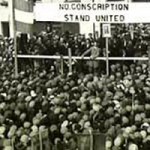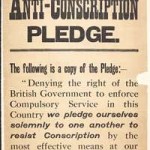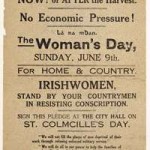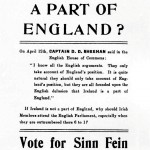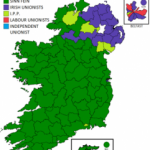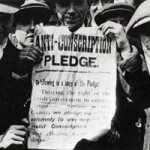The 1918 General Election
__________________________________
1916
- Sinn Fein gained huge popularity between 1916 & 1918 due to the executions of the Rebels in 1916. Some of the leaders had been freed from prison in 1917, after which they became candidates for Sinn Féin in the 1918 Election. (Eamon deValera & W.T. Cosgrave)
- British Government dubbed the 1916 Rising the ‘Sinn Fein Rising’, thereby linking the small party directly to the martyrdom and sacrifice of the executed Rebel leaders. Huge decline in Irish Parliamentary Party’s support in 1918 who won only 6 seats.
1917
- Father of Joseph Plunkett won a by-election in 1917 for Sinn Féin. They also won two other by-elections in 1917.
- By 1917, Sinn Fein membership had grown ten-fold.
- Arthur Griffith reorganised Sinn Fein, with many Republicans joining the party.
- Sinn Fein Ard-Fheis elects DeValera as President of Sinn Fein and the Irish Volunteers. (Political & Military wings of Republicanism are united)
1918
- Representation of the People Act 1918: Introduced the vote to women over 30 for the first time. Also gave the vote to men over 21, most of whom had no allegiance to the Irish Parliamentary Party over the previous 20 years. It also increased the Irish electorate from 700,000 to almost 2 million voters.
- April 1918. British Government attempt to introduce conscription in Ireland. Opposed by all Irish parties and major bodies: Sinn Fein, Labour Party, Irish Parliamentary Party, Catholic Church & trade unions. Strike held to oppose conscription. 2 million signatures on anti-conscriptionpledge. British Government abandons conscription in Ireland.
- May 1918. British government order the arrest of leading Sinn Fein members on the charge of attempted gun-running with Germany. (the ‘German Plot’)
- ‘Home Rule v. Republic’. Crucially, Labour Party agrees not to contest seats against Sinn Fein candidates, allowing Irish voters to choose between HomeRule (IPP) and a Republic (Sinn Fein).
RESULTS
- Sinn Fein won 73 seats on a policy of Abstentionism fromWestminster.
- Sinn Féin now had a very clear mandate to pursue an independent Republic, setting up their own Parliament in 1919 – Dáil Eireann. This would be the beginning of the Irish War of Independence 1919-1921.
- Anti-Conscription rally (1918)
- Anti-Conscription Pledge
- 1918 Election results


